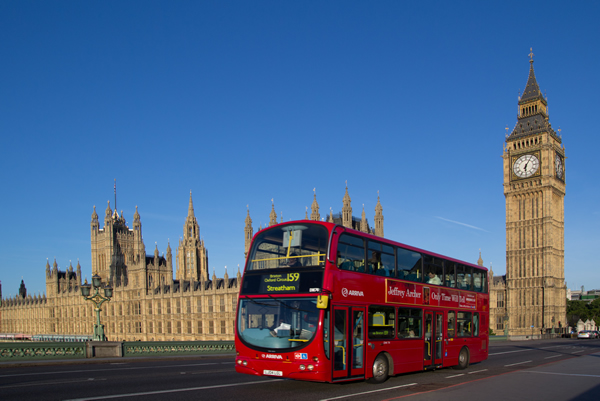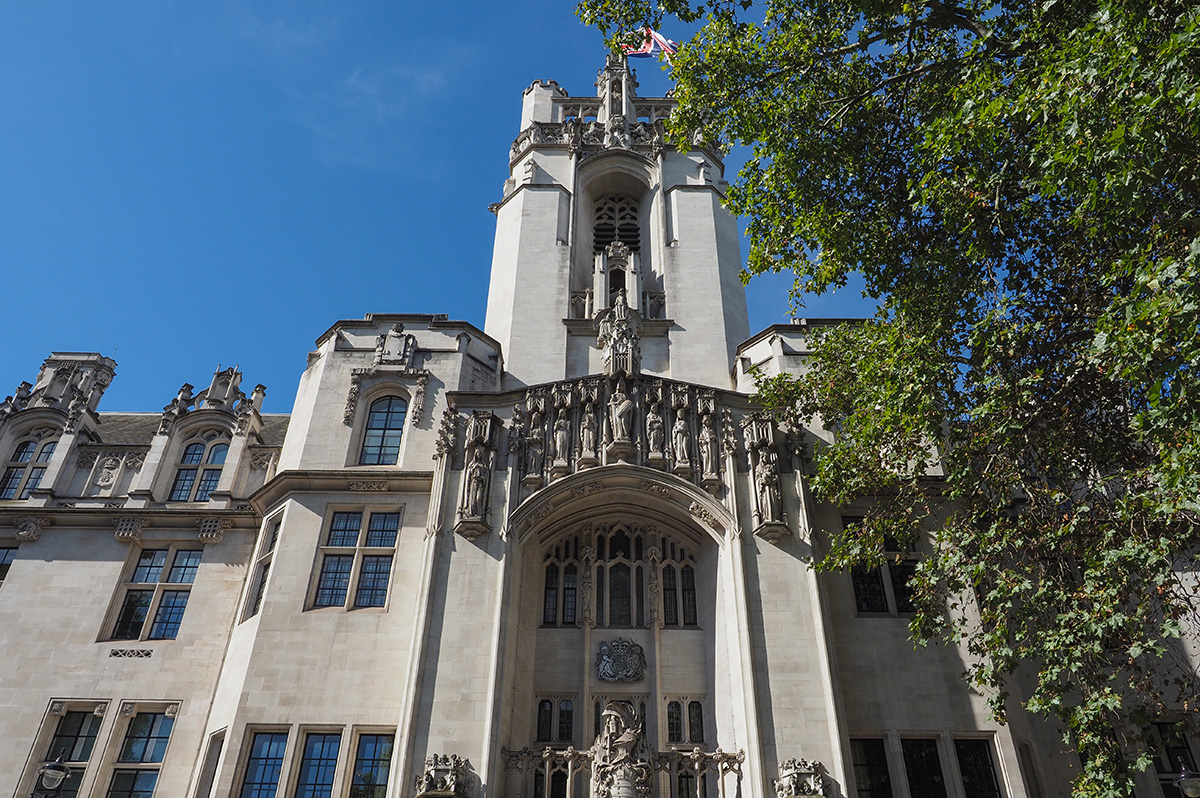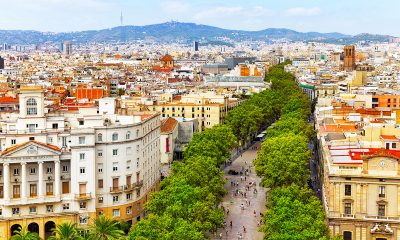United Kingdom
British government cancels global LGBTQ rights conference
Boycott announced after prime minister backed trans-exclusive conversion therapy ban

The Washington Blade has confirmed the British government has cancelled a global LGBTQ rights conference it was to have hosted this summer.
The Safe to Be Me Conference was to have taken place in London from June 29-July 1. Toby Usnik, the head of communications for the British Consulate General in New York, on Tuesday confirmed the conference has been cancelled.
The conference’s cancellation comes a day after Stonewall and dozens of other British LGBTQ rights groups announced they would not attend in response to Prime Minister Boris Johnson’s decision to exclude transgender people from a conversion therapy ban. LGBT Business Champion Iain Anderson, whose appointment Women and Equalities Minister Liz Truss announced last September, on Tuesday resigned.
“It is disappointing to see partners withdraw from an international conference focused on the fundamental human rights issues facing LGBT+ people around the world, and as a result it will not be possible to proceed with the Safe To Be Me Conference,” said a British government spokesperson on Wednesday in a statement.
“We remain committed to strengthening LGBT+ rights and freedoms and will continue to support human rights defenders globally and to influence and support countries on the path to decriminalization,” added the spokesperson. “The U.K. will continue to engage extensively with our international partners, and we will continue to use our position on the world stage to push for global change for LGBT+ people.”
United Kingdom
Four UK Pride organizations ban political parties from events
Statement notes Supreme Court ruling that excludes trans women from legal definition of woman

The organizers of four of the largest Prides in the U.K. have banned political parties from their events.
A statement that Pride in London, Manchester Pride, Birmingham Pride, and Brighton Pride issued on Thursday specifically notes last month’s U.K. Supreme Court ruling that said the legal definition of a woman is limited to “biological women” and does not include transgender women.
“The recent ruling by the U.K. Supreme Court to exclude trans women from the definition of the term ‘woman’ underscores the urgent need for immediate action,” reads the statement. “In this moment, we choose to stand firmer, louder, and prouder in demanding change that protects and uplifts trans lives.”
British Prime Minister Keir Starmer after the ruling said “a woman is a biological woman” under the country’s 2010 Equality Act that bans discrimination based on sexual orientation and gender identity.
The Pride organizations in their statement did not specifically reference Starmer and his comments. They did, however, announce they are “collectively suspending political party participation in our Pride events.”
“Know that this is not a symbolic gesture,” reads the statement. “It is a direct call for accountability and a refusal to platform those who have not protected our rights.”
The groups also made the following demands:
• Full and enforceable protections under the Equality Act
• Timely and dignified access to NHS (National Health Service) gender-affirming healthcare
• A reformed, accessible Gender Recognition Certificate process
• Sustainable funding for trans-led services and support organizations across the U.K.
“This is the minimum,” said the groups. “Anything less is not allyship, it is abandonment.”
“Our main parties have let us down and need to re-earn their place in our marches,” said Peter Tatchell, a long-time LGBTQ activist from the U.K. who is the director of the Peter Tatchell Foundation, in a newsletter that his organization publishes. “Pride is a protest.”
United Kingdom
UK Supreme Court rules legal definition of woman limited to ‘biological women’
Advocacy groups say decision is serious setback for transgender rights

The British Supreme Court on Wednesday ruled the legal definition of a woman is limited to “biological women” and does not include transgender women.
The Equality Act that bans discrimination based on sexual orientation and gender identity took effect in 2010.
Scottish MPs in 2018 passed a bill that sought to increase the number of women on government boards. The Supreme Court ruling notes For Women Scotland — a “feminist voluntary organization which campaigns to strengthen women’s rights and children’s rights in Scotland” — challenged the Scottish government’s decision to include trans women with a Gender Recognition Certificate in its definition of women when it implemented the quota.
Stonewall U.K., a British advocacy group, notes a Gender Recognition Certificate is “a document that allows some trans men and trans women to have the right gender on their birth certificate.”
“We conclude that the guidance issued by the Scottish government is incorrect,” reads the Supreme Court ruling. “A person with a GRC (Gender Recognition Certificate) in the female gender does not come within the definition of ‘woman’ for the purposes of sex discrimination in section 11 of the EA (Equality Act) 2010. That in turn means that the definition of ‘woman’ in section 2 of the 2018 Act, which Scottish ministers accept must bear the same meaning as the term ‘woman’ in section 11 and section 212 of the EA 2010, is limited to biological women and does not include trans women with a GRC.”
The 88-page ruling says trans people “are protected by the indirect discrimination provisions” of the Equality Act, regardless of whether they have a Gender Recognition Certificate.
“Transgender people are also protected from indirect discrimination where they are put at a particular disadvantage which they share with members of their biological sex,” it adds.
Susan Smith, co-founder of For Women Scotland, praised the decision.
“Today the judges have said what we always believed to be the case, that women are protected by their biological sex,” she said, according to the BBC. “Sex is real and women can now feel safe that services and spaces designated for women are for women and we are enormously grateful to the Supreme Court for this ruling.”
Author J.K. Rowling on X said it “took three extraordinary, tenacious Scottish women with an army behind them to get this case heard by the Supreme Court.”
“In winning, they’ve protected the rights of women and girls across the UK,” she added.
It took three extraordinary, tenacious Scottish women with an army behind them to get this case heard by the Supreme Court and, in winning, they’ve protected the rights of women and girls across the UK. @ForWomenScot, I’m so proud to know you 🏴💜🏴💚🏴🤍🏴 https://t.co/JEvcScVVGS
— J.K. Rowling (@jk_rowling) April 16, 2025
Advocacy groups in Scotland and across the U.K. said the ruling is a serious setback for trans rights.
“We are really shocked by today’s Supreme Court decision — which reverses 20 years of understanding on how the law recognizes trans men and women with Gender Recognition Certificates,” said Scottish Trans and the Equality Network in a statement posted to Instagram. “The judgment seems to have totally missed what matters to trans people — that we are able to live our lives, and be recognized, in line with who we truly are.”
Consortium, a network of more than 700 LGBTQ and intersex rights groups from across the U.K., in their own statement said it is “deeply concerned at the widespread, harmful implications of today’s Supreme Court ruling.”
“As LGBT+ organizations across the country, we stand in solidarity with trans, intersex and nonbinary folk as we navigate from here,” said Consortium.
The Supreme Court said its decision can be appealed.
United Kingdom
Current, former PinkNews staffers accuse publisher, husband of sexual harassment
CEO Anthony James suspended from NHS job after allegations became public

Thirty-three current and former employees of an LGBTQ news website in the U.K. have accused its publisher and husband of sexual harassment and misconduct.
The BBC on Tuesday reported “several” former PinkNews staffers saw Chief Operating Officer Anthony James “kissing and touching a junior colleague who they saw appeared too drunk to consent” outside of a London pub after a company event.
James’s husband, Benjamin Cohen, founded PinkNews in 2005.
The BBC reported the current and former staffers with whom it spoke said “a culture of heavy drinking led to instances when” Cohen and James “behaved inappropriately towards younger male employees.”
Stephan Kyriacou, who worked at PinkNews from 2019-2021, told the BBC that Cohen slapped him on his butt at a Christmas party.
“I just shut down for a minute. I didn’t know what to say. I was in shock,” Kyriacou told the BBC. “I remember turning to my friends and saying, ‘What the hell just happened?'”
The BBC spoke with PinkNews staffers who said “they were shouted at and belittled by Mr. Cohen, and that there was a ‘toxic’ culture at the company. Others said they saw “misogynistic” behavior.
Neither Cohen, nor James spoke with the BBC. The Washington Blade has reached out to PinkNews for comment.
Media reports indicate Bedfordshire Hospitals NHS (National Health Service) Foundation suspended James, who is a doctor, from his job after the allegations against him and Cohen became public.
-

 Virginia2 days ago
Virginia2 days agoDefying trends, new LGBTQ center opens in rural Winchester, Va.
-

 South Africa5 days ago
South Africa5 days agoLesbian feminist becomes South African MP
-

 Travel4 days ago
Travel4 days agoManchester is vibrant tapestry of culture, history, and Pride
-

 Opinions3 days ago
Opinions3 days agoUSAID’s demise: America’s global betrayal of trust with LGBTQ people










